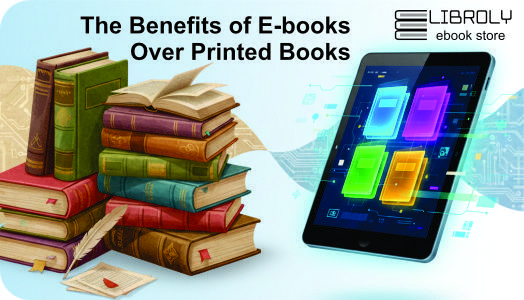E-books offer instant access, lower costs, and customizable features, making them a smarter and more sustainable choice than printed books.
- Arts Design
- Engineering and Technology
- Agriculture and Natural Resources
- Arts and Humanities
- Biological Sciences
- Business, Management, and Economics
- Civil Engineering
- Earth Sciences
- Health Sciences
- Humanities and Social Sciences
- Management Sciences
- Environmental Sciences and Natural Resources
-
Medicine
- Anesthesia
- Internal Medicine
- Plastic Surgery and Otorhinolaryngology (ENT)
- Public Health
- Sports Medicine and Rehabilitation
- Basic Medical Sciences
- Behavioral Sciences and Psychology
- Blood and Cancer
- Cardiology and Cardiac Surgery
- Dentistry
- Dermatology
- Emergency
- Gynecology and Obstetrics
- Neurology
- Nursing
- Nutrition
- Ophthalmology
- Orthopedic
- Pathology and Laboratory Sciences
- Pediatrics
- Pharmacy
- Radiology
- Surgery
- Urology
- Veterinary Medicine
- Natural Sciences
- Smart Technologies
- Social Sciences
The Benefits of E-books Over Printed Books: Why You Should Make the Switch Today

In our contemporary society, where technological progress is occurring at an incredible rate, reading formats have expanded beyond traditional methods. Although printed books continue to be cherished by many fans, e-books have successfully taken a significant portion of the book market for various reasons. This article explores the key benefits of e-books compared to printed books and demonstrates why this is the ideal moment to embrace digital reading.
Easy and Instant Access
One of the biggest advantages of e-books is the immediate access to specialized content. To buy a printed book, you often have to go to a store or wait a few days for it to be shipped. With an e-book, you can purchase the title you want and start reading right away with just a few clicks. This is especially valuable for students, researchers, and professionals who need immediate access to resources.
Cost Savings
Printed books are often more expensive due to the costs of paper, printing, packaging, and shipping. In contrast, e-books lack these additional costs and are usually offered at a much lower price. Furthermore, many e-books are available through special discounts, free versions, or monthly subscriptions. For avid readers, this price difference can be very significant over time, reducing costs for both publishers and readers.
Portable and Lightweight
If you are a frequent traveler or commuter, you probably know how difficult and heavy it can be to carry several printed books. E-books completely solve this problem: you can store thousands of titles on a single small device like a phone, tablet, or e-reader. That means you can always have a complete library in your pocket and read whatever you want, wherever you are.
Search and Note-Taking Capabilities
Unlike printed books, where you must flip through pages repeatedly to find a specific topic, e-books are equipped with quick search functions. You can enter a keyword or phrase and be directed to the relevant section in a fraction of a second. Features like highlighting, adding notes, and bookmarking let you create a personalized and efficient reading experience.
Environmentally Friendly
One of the most important global issues today is environmental preservation. The printing and paper industry depends on extensive consumption of trees and natural resources. By choosing e-books, you help reduce deforestation, energy consumption, and pollution from transportation. Digital reading is a greener choice that considers the planet's future.
Customizable and Personalizable
Every reader has different preferences. Some prefer larger fonts, others prefer a dark background for nighttime reading. E-books allow you to change font size, font type, background color, and screen brightness to suit your needs. This improves comfort and is especially useful for people with visual impairments.
Multimedia Capabilities
Printed books are limited to text and images. E-books can include videos, audio, interactive links, and animations. This is particularly beneficial for educational and specialized books. Combining text with multimedia enhances comprehension, increases engagement, and improves the learning experience.
Easy Content Updates
With printed books, if a new edition is released you typically must buy the entire book again. E-books can receive online updates: authors and publishers can correct errors or add new content, and readers can access the latest version often at no extra cost or for a small fee.
Global Search and Infinite Variety
With the expansion of online bookstores, you can access books published anywhere in the world. You are no longer limited to local bookstores or library inventories. This global variety is a huge advantage, especially for specialized topics and rare resources. You can find titles from around the world and in different languages.
Security and Longevity
Printed books are vulnerable to moisture, fire, or the passage of time. E-books can be stored and backed up in the cloud or on multiple devices. Therefore, even if a device breaks or is lost, your books remain safe.
Conclusion: Reasons to Transition to E-Books Now
While printed books retain their charm and importance, e-books provide greater versatility, affordability, and efficiency. With immediate access, cost savings, customizable features, and a smaller environmental footprint, e-books deliver a contemporary reading experience. If you haven't transitioned to digital books yet, now is a perfect moment to do so — the future of reading will certainly be dominated by e-books, and it's a future you can embrace today.
Share this post:







0 Comments